2012 Summer Olympics
| Games of the XXX Olympiad | |
|---|---|
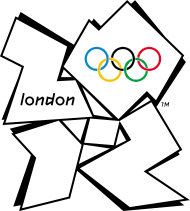 |
|
| This is the clear version of the official logo. There are four official base colours, and another version for the 2012 Summer Paralympics. For more details, see section "Logo" below. |
|
| Host city | London, United Kingdom |
| Motto | Live as one |
| Nations participating | 205 (estimated) |
| Athletes participating | 10,500 (estimated) |
| Events | 302 in 26 sports |
| Opening ceremony | July 27 |
| Closing ceremony | August 12 |
| Stadium | Olympic Stadium |
|
| IOC • BOA • LOCOG |

The 2012 Summer Olympic Games, officially known as the Games of the XXX Olympiad, are scheduled to take place in London, United Kingdom, from 27 July to 12 August 2012.[1] London will become the first city to officially host the modern Olympic Games three times,[2][3] having previously done so in 1908 and in 1948.[4][5]
London was elected as the host city on 6 July 2005 during the 117th IOC Session in Singapore, defeating Moscow, New York City, Madrid and Paris after four rounds of voting.[6] The successful bid was headed by former Olympic champion Sebastian Coe.
The Olympics prompted a redevelopment of many of the areas of London in which the games are to be held – particularly themed towards sustainability[7] – while the budgetary considerations have generated some criticism.[8][9]
Contents |
Bidding process
By the bid submission deadline of 15 July 2003, nine cities had submitted bids to host the 2012 Olympics. These cities were Havana, Istanbul, Leipzig, London, Madrid, Moscow, New York, Paris and Rio de Janeiro.[10]
On 18 May 2004, the International Olympic Committee (IOC), as a result of a scored technical evaluation, reduced the number of cities to five: London, Madrid, Moscow, New York, and Paris.[11]
By 19 November 2004, all five candidate cities had submitted their candidate file to the International Olympic Committee. The IOC inspection team visited the five candidate cities during February and March 2005. The Paris bid suffered two setbacks during the IOC inspection visit: a number of strikes and demonstrations coinciding with the visits and a report coming out that Guy Drut, one of the key members of the Paris bid team and IOC member, would face charges over alleged corrupt party political finances.[12]
On 6 June 2005, the International Olympic Committee released its evaluation reports for the five candidate cities. Although these reports did not contain any scores or rankings, the evaluation report for Paris was considered the most positive, now followed closely by London which had narrowed down most of the gap observed by the initial evaluation in 2004 regarding Paris. Also New York and Madrid obtained very positive evaluation reports.[13]
Throughout the process and up to the vote at the 117th IOC Session, Paris was widely seen as the favourite to win the nomination, particularly as this was its third bid in recent history. Originally London was seen lagging Paris by considerable margin; however, this started to improve with the appointment of Sebastian Coe as new head of London 2012 on 19 May 2004. In late August 2004, some reports started emerging predicting a London and Paris tie in the 2012 bid.[14] In the final run-up to the 117th IOC Session, London and Paris appeared to be increasingly in a neck-and-neck race. On 1 July 2005, Jacques Rogge, when asked who the winner would be, told the assembled press: "I cannot predict it since I don't know how the IOC members will vote. But my gut feeling tells me that it will be very close. Perhaps it will come down to a difference of say ten votes, or maybe less".
On 6 July 2005, the final selection was announced at the Raffles City Convention Centre in Singapore, where the 117th IOC Session was held. Here Prime Minister of the United Kingdom Tony Blair was the only leader of the five candidate cities' countries to make a personal lobby (he had also been the only one to attend the 2004 Olympics).[15] Moscow was the first city to be eliminated, followed by New York and Madrid. The final two cities left in contention were London and Paris. At the end of the fourth round of voting, London won the right to host the 2012 Games with 54 votes, defeating Paris's 50. Various French publications blamed the Paris loss on French President Jacques Chirac's statements before the vote that "We can't trust people [the British] who have such bad food. After Finland, it's the country with the worst food."[16] Two current members of the International Olympic Committee are from Finland. Several other news sources cited Bertrand Delanoë's complaint regarding Tony Blair's secret late night meetings with numerous (African) IOC representatives as having a more significant impact on final vote.[17] When reporting London's win, British media covered the expectant crowds in both France and Britain (and in the other bid cities), and contrasted the jubilant reaction in London to the reaction of the crowd in Paris, where many had gathered in hope of a French win.[18][19][20] However, the celebrations in London were overshadowed when London's transport system was attacked by terrorists less than 24 hours after the announcement.[21]
In December 2005, it was alleged by Alex Gilady, a senior IOC official, that London had won the right to host the Olympics only because of a voting error. A London 2012 spokesman dismissed this, saying "At the end of the day, it was a secret ballot. This is the opinion of one individual. The result is what matters and we are not going to be drawn into speculation."[22]
| 2012 Summer Olympics bidding results | ||||||
|---|---|---|---|---|---|---|
| City | NOC | Round 1 | Round 2 | Round 3 | Round 4 | |
| London | 22 | 27 | 39 | 54 | ||
| Paris | 21 | 25 | 33 | 50 | ||
| Madrid | 20 | 32 | 31 | — | ||
| New York City | 19 | 16 | — | — | ||
| Moscow | 15 | — | — | — | ||
Olympic development and preparation
Developments since the 2005 bid
The London Organising Committee for the Olympic Games was created to oversee the staging of the Games after the success of the bid, and held their first board meeting on 7 October 2005. The committee, chaired by Lord Coe, is in charge of implementing and staging the games, while the Olympic Delivery Authority (ODA) is in charge of the construction of the venues and infrastructure.
The Government Olympic Executive (GOE), a unit within the Department for Culture, Media and Sport (DCMS), is the lead Government body for coordinating the London 2012 Olympics. The GOE reports through the DCMS Permanent Secretary to the Minister for Sports and the Olympics, Hugh Robertson. It focuses on oversight of the Games, cross-programme programme management and the London 2012 Olympic Legacy before and after the Games that will benefit London and the UK.
Various aspects of the Games have developed since the time of the initial bid.
Venues and infrastructure


The 2012 Olympic and Paralympic Games will use a mixture of new venues, existing and historic facilities, and temporary facilities, some of them in well-known locations such as Hyde Park and Horse Guards Parade. In the wake of the problems that plagued the Millennium Dome, the organisers' intention is that there will be no white elephants after the Games and instead that a "2012 legacy" will be delivered. Some of the new facilities will be reused in their Olympic form, while others, including the 80,000 seater main stadium,[24] will be reduced in size and several will be relocated elsewhere in the UK. The plans are part of the regeneration of Stratford in east London which will be the site of the Olympic Park, and of the neighbouring Lower Lea Valley.
This has required the compulsory purchase of some business properties, which are being demolished to make way for Olympic venues and infrastructure improvements. This has caused some controversy, with some of the affected proprietors claiming that the compensation offered is inadequate. In addition, concerns about the development's potential impact on the future of the century-old Manor Garden Allotments have inspired a community campaign, and the demolition of the Clays Lane housing estate was opposed by tenants.
The majority of venues have been divided into three zones within Greater London: the Olympic Zone, the River Zone and the Central Zone. In addition to these are those venues that, by necessity, are outside the boundaries of Greater London, such as the Weymouth and Portland National Sailing Academy on the Isle of Portland in Dorset (which will host the sailing events, some 235 km southwest of the Olympic Park) The Ricoh Arena in Coventry, some 170 km northwest of the Olympic Park, will host footballing events along with other stadia across the UK..[25]
Public transport

London's public transport was an element of the bid which was scored poorly in the IOC's initial evaluation. Transport for London (TfL) are carrying out numerous improvements in preparation for 2012, including the expansion of the London Overground's East London Line, upgrades to the Docklands Light Railway and the North London Line, and the introduction of a new "Javelin" high-speed rail service, using the Hitachi Corporation's "bullet" trains.
TfL also propose the construction of a £25m cable car across the River Thames to link 2012 Olympics venues.[26] It will cross the Thames river between Greenwich Peninsula and the Royal Docks, carrying up to 2,500 passengers an hour 50 metres in the air. It is designed to cut journey times between the O2 arena and the ExCel exhibition centre - both of which are Olympic locations. The privately-funded system could provide a crossing every 30 seconds.[27]
They also plan to have 80% of athletes travel less than 20 minutes to their event. This Park would be served by ten separate railway lines with a combined capacity of 240,000 passengers per hour. Park-and-ride plans are also among the many plans aimed at reducing road traffic levels during the games.
Concerns have been expressed at the logistics of spectators traveling to the events schedule for outside of London. In particular, the sailing events at Portland are in an area with no direct motorway connection, and with local roads that are heavily congested by existing tourist traffic in the summer. There is also only limited scope for extra services on the South Western Main Line beyond Southampton, without new infrastructure. The Olympic Games' organisers say that having analyzed past Olympic sailing events, they would expect fewer spectators than have attended recent events such as the Carnival and Tall Ships Race, this despite the United Kingdom being at the top of the sailing medal table at the previous three Olympic Games.
In January 2010 the South East England regional transport board criticised plans published by the Olympics Development Authority for not providing plans of a credible long term coach network saying "The ODA has been working on an extensive network of coach services... [but] the lack of reference to this work [in the plan] is both intriguing and at the same time concerning." On 15 February 2010, the ODA announced that FirstGroup was the preferred bidder for the provision of bus and coach services for the games. This will involve the provision of venue shuttle and park and ride services, services connecting peripheral park and ride sites on the M25 with the Olympic Park and Ebbsfleet, and a nationwide network of express coaches to the Olympic Park, and the Weymouth and Portland sailing venue. The services will require around 900 vehicles in total, although some will be sub-contracted.[28][29]
Financing
The costs of mounting the Games are separate from those for building the venues and infrastructure, and redeveloping the land for the Olympic Park. While the Games are privately funded, the venues and Park costs are met largely by public money.
On 15 March 2007 Tessa Jowell announced to the House of Commons a budget of £5.3 billion to cover building the venues and infrastructure for the Games, at the same time announcing the wider regeneration budget for the Lower Lea Valley budget at £1.7 billion.
On top of this, she announced various other costs including an overall additional contingency fund of £2.7 billion, security and policing costs of £600 million, VAT of £800 million and elite sport and Paralympic funding of nearly £400 million. According to these figures, the total for the Games and the regeneration of the East London area, is £9.345 billion. Then Mayor Ken Livingstone pledged the Games Organising Committee would make a profit.[30]
The costs for staging the Games (£2 billion) are funded from the private sector by a combination of sponsorship, merchandising, ticketing and broadcast rights. This budget is raised and managed by the London 2012 Organising Committee. According to Games organisers, the funding for this budget broadly breaks down as:
- 63% from Central Government;
- 23% from National Lottery
- 13% from the Mayor of London and the London Development Agency
On 18 August 2007 The Belfast Telegraph reported that jubilation over winning the right to stage the Olympic Games was becoming more muted as realisation dawns on the public of the enormous costs involved in creating facilities for the athletes.[31] Grassroot sport cuts will fund the Olympics, government figures suggested on 19 August 2007.[32]
In November 2007, Edward Leigh MP, criticised the organisers for significantly under-estimating the cost of staging the games, suggesting they had either "acted in bad faith or were incompetent".[33]
On 10 December 2007 Tessa Jowell announced confirmation of the budget announced earlier in 2007. In June 2007, the Ministerial Funders’ Group (established to manage the allocation of contingency to the ODA within the overall budget) met and agreed a first allocation of contingency to the ODA, being £360m out of the £500m of initial contingency announced in March, to enable the ODA to manage early cost pressures.
Following its second meeting on 26 November 2007, the Funders’ Group has now agreed a baseline budget and scope proposed by the ODA. The total budgeted base cost to be met by the public sector funding package remains at £6.090bn including tax and excluding general programme contingency as announced in March. This includes the allocation to the ODA of the remaining £140m from the initial £500m contingency announced in March.[34]
There have, however, been concerns over how the Olympics are to be funded. In February 2008, a London Assembly culture and sport committee report expressed concerns over the funding of the games taking away money from London's sports and arts groups.[35] There have also been complaints that funding towards the Olympics has been to the detriment of funding other areas of the UK. In Wales, there has been criticism from Plaid Cymru about the games depriving Wales of money, by using UK-wide funding rather than English funding.[36] The Wales on Sunday newspaper claimed former UK Prime Minister Tony Blair broke his promise to not use National Lottery funding for the Olympic games.[37][38]
As at December 2009, the Delivery Authority had allocated £702 million of Programme and Funders’ contingency, largely to cover the decisions to publicly fund the Village and Media Centre after it became clear private funding could not be secured on acceptable terms during the 2008 to 2010 economic crisis. According to the Government Olympic Executive and Olympic Delivery Authority risk assessments the remaining £1,270 million contingency is sufficient to manage risks to the Delivery Authority’s programme.[39]
Also from May 2010, the Olympic budget will be cut by £27 million as part of the £6.2 billion cuts by the new Conservative-Liberal coalition government.
Partners
To help fund the cost of the games the London Olympic organisers have agreed partnership deals with major companies. "Tier One" partners already announced include adidas, BMW, BP, British Airways, BT, EDF Energy, Intercontinental Hotels Group, and Lloyds TSB."Tier Two" supporters already announced include Adecco, Cadbury, Cisco, Deloitte, Thomas Cook Group and UPS.
Ticketing
Organisers estimate that some 8.0 million tickets would be available for the Olympic Games, and 1.5 million tickets for the Paralympic Games. Ticket sign-up was launched on 22 March 2010 and all tickets will go on sale to the public in spring 2011. To reduce traffic, ticket holders will be entitled to free use of London's public transportation network on the day of the event.[40] It is estimated that 82% of available Olympic tickets and 63% of Paralympic tickets will be sold. There will also be free events: for example, the marathon, triathlon and road cycling.[41]
Scheduling issues
Some representatives of Muslim countries have complained that the 2012 Olympic Games will take place during the month of Ramadan, which in 2012 occurs from 20 July to 19 August. During Ramadan, Muslims are to fast from sunrise to sunset, which may put Muslim athletes at a disadvantage during the Games. Some Muslims have called for the Olympics to be rescheduled outside this period.[42]
Logo
There have been two London 2012 logos: one for the bidding process created by Kino Design and a second as the brand for the Games themselves. The latter, designed by Wolff Olins, was unveiled on 4 June 2007 and cost £400,000.[43] This new logo is a representation of the number 2012, with the Olympic Rings embedded within the zero.[44]
This will be the first time that the same essential logo is to be used for both the Olympic and Paralympic games.[45]
The standard colours are green, magenta, orange and blue; however the logo has incorporated a variety of colours, including the Union Flag to promote the handover ceremony.[46] The flexibility of the logo has also enabled sponsors to incorporate their corporate colours into a personalised version, such as Lloyds TSB,[47] British Airways,[48] and Adidas.[49]
London 2012 has stated that the new logo is aimed at reaching young people. Sebastian Coe stated that it builds upon everything that the organising committee has said "about reaching out and engaging young people, which is where our challenge is over the next five years". One observer, a managing director of an advertising agency, noted that the logo bore a strong resemblance to the logo for the 1974-1982 children's television programme Tiswas, commenting that appealing to young people is difficult, and that they will see right through attempts to patronise them.[50]
Early public reaction to the logo, as measured by a poll on the BBC website, was largely negative: more than 80% of votes gave the logo the lowest possible rating.[51] Several newspapers have run their own logo competitions, displaying alternative submissions from their readers. The Sun displayed a design by a macaque monkey.[52] It was suggested that the logo resembles the cartoon character Lisa Simpson performing fellatio[53] and others have complained that it looks like a distorted Swastika.[54]

A segment of animated footage released at the same time as the logo was reported to trigger seizures in a small number of people with photosensitive epilepsy. The charity Epilepsy Action received telephone calls from people who had had seizures after watching the sequence on TV. In response, a short segment was removed from the London 2012 website.[55] Ken Livingstone, then London Mayor, said that the company who designed the film should not be paid for what he called a "catastrophic mistake".[56]
A blogger at the BBC said that "London 2012's new logo has got the country talking [although] not in the manner the organisers would have hoped".[57] One employee at a design firm described it as "well thought out" and anticipated it would "become a source of pride for London and the Games."[58]
In October 2008, it was reported that clothing branded with the logo accounted for 20% of sales at Adidas' flagship Oxford Street store, despite occupying just 5% of floor space.[59]
Mascots

The official mascots for the 2012 Summer Olympic and Paralympic Games were unveiled on 19 May 2010;[60] this marks the second time (after Vancouver) that both Olympic and Paralympic mascots were unveiled at the same time. Wenlock and Mandeville are animations depicting two drops of steel from a steelworks in Bolton.[60] They are named Wenlock, after the Shropshire town of Much Wenlock, which held a forerunner of the current Olympic Games, and Mandeville, after Stoke Mandeville, a village in Buckinghamshire where the Paralympic Games were first held.[60] The writer Michael Morpurgo wrote the story concept to the mascots, and an animation was produced;[61] it is intended that this will form part of an ongoing series concerning the mascots in the run-up to the Games in 2012.[60]
Handover ceremony
The handover ceremony marked the moment when the previous games in Beijing in 2008 handed over the Olympic Flag to the new host city of London.[62] Mayor of London Boris Johnson received the flag from Mayor of Beijing Guo Jinlong, on behalf of London. The handover ceremony featured the urban dance group ZooNation, the Royal Ballet and Candoco, a disabled dance group, all dressed as typical London commuters waiting for a bus by a zebra crossing. A double-decker bus drove around the stadium to music composed by Philip Sheppard eventually stopping and transforming into a privet hedge featuring famous London landmarks such as Tower Bridge, The Gherkin and the London Eye. Jimmy Page and Leona Lewis then performed the Led Zeppelin classic Whole Lotta Love and David Beckham kicked a football into the crowd of athletes accompanied by violinist Elspeth Hanson and cellist Kwesi Edman.[63]
For the London 2012 Games, 'Take Up The Challenge' is the leading contender to be the music that will inspire a new generation of athletes. The anthem was composed by Rob Cremona, an Anglo-Maltese trumpeter and multi-instrumentalist from Woking in Surrey. Meanwhile, the handover has been celebrated in a UK-wide series of events. The BBC broadcast "The Visa London 2012 Party" on BBC One and Radio 2, the free concert on The Mall in central London had 40,000 tickets available.[64] In nations and regions around the UK there were live screens that showed the activities from Beijing, the Closing Ceremony and then the concert itself. Local communities around the UK also hosted their own events.
The Games
Sports
The 2012 Summer Olympic programme features 26 sports and a total of 38 disciplines. The 2012 Paralympic Games programme has 20 sports and 21 disciplines. London's bid featured 28 sports, in line with other recent Summer Olympics, but the IOC voted to drop baseball and softball from the 2012 Games two days after it selected London as the host city. The IOC reinforced its decision to drop both sports during the Turin Games after they lost votes for reconsideration. They will remain Olympic sports, despite being scheduled for the last time at Beijing in 2008.[65] Following the decision to drop the two sports, the IOC held a vote on whether or not to replace them. The sports considered were karate, squash, golf, roller sports, and rugby sevens. Karate and squash were the two final nominees, but neither received enough votes to reach the required two-thirds majority.[65] The IOC has given the approval for the addition of golf and rugby sevens for the 2016 games.[66][67]
The International Olympic Committee executive board met on 13 August 2009 and approved the addition of women's boxing to the programme. The International Boxing Federation has proposed that 40 athletes compete in five different weight classes.[68]
Murad Qureshi, a member of the London Assembly, is pushing for a Twenty20 cricket showcase tournament to be included in London.[69] Twenty20 cricket did originally bid for inclusion in 2012, but was not one of the finalist sports.[70] Netball is being drafted as a possible demonstration sport at the 2012 games. This idea was backed by then British prime minister Gordon Brown, suggesting that it would encourage more girls and young women to play sports.[71] The IOC eliminated demonstration sports following the 1992 Summer Olympics.[72] However, special tournaments have been run for non-Olympic sports during the games, such as the Wushu tournament at the 2008 Summer Olympics.[69] There has been speculation that the London Sevens tournament held at Twickenham as part of the IRB Sevens World Series could be put back to coincide with the Olympics.[73]
Broadcasting
Continuing the IOC's commitment to providing over-the-air television coverage to as broad a worldwide audience as possible, London 2012 is scheduled to be broadcast by a number of regional broadcasters. The United States television rights currently owned by NBC account for over half the rights revenue for the IOC. Many television broadcasters granted rights to the games have bureaux and studios in London, but since at least the 1988 Olympic Winter Games in Calgary, rights-holder operations are hosted in the dedicated International Broadcast Centre (IBC). London's IBC is planned to be inside the security cordon of the Olympic Park.
As rights for the 2012 Games have been packaged with those for the 2010 Winter Olympics, broadcasters will be largely identical for both events. Confirmed broadcasters include:
- ((Flag|Asia)): ESPN Star Sports (except for China, Hong Kong, Taiwan & Philippines)
 Australia: Nine Network & Foxtel
Australia: Nine Network & Foxtel Austria: ORF & Sky
Austria: ORF & Sky Azerbaijan: İTV
Azerbaijan: İTV Bolivia: Unitel
Bolivia: Unitel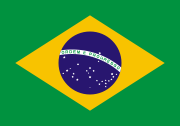 Brazil: Rede Record, Sportv & Terra Networks[74]
Brazil: Rede Record, Sportv & Terra Networks[74]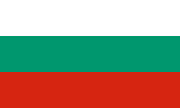 Bulgaria: BNT 1
Bulgaria: BNT 1 Canada: CTV, Rogers Sportsnet, V, TSN & RDS[75]
Canada: CTV, Rogers Sportsnet, V, TSN & RDS[75] Chile: TVN & Canal 13
Chile: TVN & Canal 13 China: China Central Television & China Radio
China: China Central Television & China Radio Denmark: DR & TV2
Denmark: DR & TV2 Egypt: NTN, Al Jazeera Sports, NILE Sports, AD Sports & SUDI Sports
Egypt: NTN, Al Jazeera Sports, NILE Sports, AD Sports & SUDI Sports Estonia: ETV
Estonia: ETV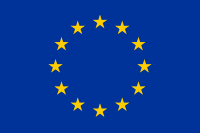 Europe: Eurosport
Europe: Eurosport Finland: YLE
Finland: YLE France: France Télévisions (competitions) & TF1 (ceremonies)[76]
France: France Télévisions (competitions) & TF1 (ceremonies)[76]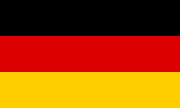 Germany &
Germany &  Austria: ARD, ZDF, ProSiebenSat.1, RTL & Sky
Austria: ARD, ZDF, ProSiebenSat.1, RTL & Sky Greece: ERT
Greece: ERT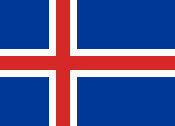 Iceland: RÚV
Iceland: RÚV Ireland: RTÉ
Ireland: RTÉ Italy: SKY Italia & RAI[77]
Italy: SKY Italia & RAI[77] Jamaica:Television Jamaica, CVM Television, RJR 94 FM & Hitz 92 FM
Jamaica:Television Jamaica, CVM Television, RJR 94 FM & Hitz 92 FM Latvia: Latvijas Televīzija
Latvia: Latvijas Televīzija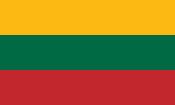 Lithuania: Lietuvos televizija
Lithuania: Lietuvos televizija Malaysia: Astro
Malaysia: Astro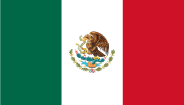 Mexico: Televisa & TV Azteca
Mexico: Televisa & TV Azteca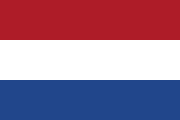 Netherlands: NOS
Netherlands: NOS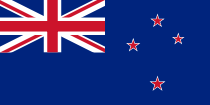 New Zealand: Prime Television New Zealand & SKY Network Television[78]
New Zealand: Prime Television New Zealand & SKY Network Television[78] Panama: TvMax Channel 9 & RPC Channel 4
Panama: TvMax Channel 9 & RPC Channel 4 Poland: TVP
Poland: TVP Portugal: RTP
Portugal: RTP Philippines: Solar TV & Solar Sports
Philippines: Solar TV & Solar Sports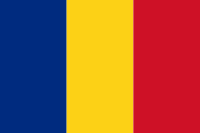 Romania: TVR
Romania: TVR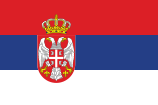 Serbia: RTS
Serbia: RTS Slovakia: STV & Radio Slovakia
Slovakia: STV & Radio Slovakia Slovenia: RTVSLO
Slovenia: RTVSLO South Africa: SuperSport
South Africa: SuperSport South Korea: SBS, MBC & KBS
South Korea: SBS, MBC & KBS Spain: TVE
Spain: TVE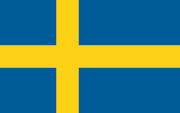 Sweden: SVT & Viasat
Sweden: SVT & Viasat Turkey: TRT[79]
Turkey: TRT[79] United Kingdom: BBC[80][81]
United Kingdom: BBC[80][81]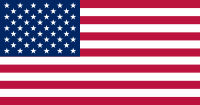 United States: NBC Universal,[82] Telemundo, USA, CNBC, Bravo & MSNBC.
United States: NBC Universal,[82] Telemundo, USA, CNBC, Bravo & MSNBC.
Social media will be important for the Games. Online technology is being developed for the London 2012 Olympics and YouTube will stream highlights of the Games to countries all over the world as part of an IOC deal.
Following the awarding of the 2012 Olympic Games to London, the government announced that special dispensation would be granted to allow the various shooting events to go ahead, as had been the case previously for the 2002 Commonwealth Games. However, it was still illegal for Britain's top pistol shooters to train in England, Scotland or Wales. As a result, British shooters currently spend 20 to 30 days a year training in Switzerland, and receive no public sports funding because their events are considered illegal in the UK.
Olympic flag
The flag was raised outside City Hall on Friday, 26 September 2008 to celebrate the start of the cultural Olympiad. The flag will continue to fly outside City Hall until the day of the Olympic opening ceremony. On the same day the Paralympic flag was raised outside City Hall.
Eco-policy
The Olympic Park will incorporate 45 hectares of wildlife habitat, with a total of 525 bird boxes, and 150 bat boxes. Local waterways and riverbanks are to be enhanced as part of the process.[83]
Short films and documentaries
- The Geography Department at Royal Holloway, University of London produced "London's Olympic Waterscape" (2010) a 20-minute documentary about the changing nature of the waterways around the main Olympic site in East London.
See also
- 2012 Summer Paralympics
- 2012 Winter Youth Olympics
- International Olympic Committee
- IOC country codes
- 2012 Summer Olympics torch relay
Notes
- ↑ "International Olympic Committee - London 2012". IOC. http://www.olympic.org/uk/games/london/index_uk.asp. Retrieved 2008-08-03.
- ↑ "Coe promises Olympics to remember". BBC Sport. 2005-07-06. http://news.bbc.co.uk/sport1/hi/other_sports/olympics_2012/4654821.stm. Retrieved 2008-08-03.
- ↑ Athens has also hosted three IOC-organised events, in 1896, 2004 and the Intercalated Games in 1906. However, the 1906 games are no longer officially recognised by the IOC, as they do not fit with the quadrennial pattern of the modern Olympics.
- ↑ "London's first Olympics". BBC Sport. 2008-04-26. http://news.bbc.co.uk/sport1/hi/olympics/7361921.stm. Retrieved 2008-08-03.
- ↑ "The 1948 London Olympics Gallery". BBC History. http://www.bbc.co.uk/history/british/modern/olympics_1948_gallery.shtml. Retrieved 2008-08-03.
- ↑ "London 2012: Election". International Olympic Committee. http://www.olympic.org/en/content/Olympic-Games/All-Future-Olympic-Games/Summer/London-2012/. Retrieved 2009-10-02.
- ↑ "Building a sustainable Games". London 2012. http://www.london2012.com/plans/sustainability/getting-ready/index.php. Retrieved 2009-10-02.
- ↑ "London plan at-a-glance". BBC News Online (BBC). June 5, 2005. http://news.bbc.co.uk/sport1/hi/olympics/london_2012/4025027.stm. Retrieved 2009-10-02.
- ↑ "What is the London 2012 Olympics?". politics.co.uk. April 24, 2008. http://www.politics.co.uk/briefings-guides/issue-briefs/culture-media-and-sport/london-2012-olympics-$366671.htm. Retrieved 2009-10-02.
- ↑ "Olympic bids: The rivals". BBC Sport. 2003-07-15. http://news.bbc.co.uk/sport1/hi/other_sports/3068323.stm. Retrieved 2008-08-03.
- ↑ "London bid team delighted". BBC Sport. 2004-05-18. http://news.bbc.co.uk/sport1/hi/other_sports/olympics_2012/3725157.stm. Retrieved 2008-08-03.
- ↑ "Day One Of Paris 2012 Inspection By IOC". GamesBids. http://www.gamesbids.com/cgi-bin/news/viewnews.cgi?category=1&id=1110389129. Retrieved 2005-03-09.
- ↑ "Paris, London and New York Get Glowing IOC Reports". GamesBids. http://www.gamesbids.com/cgi-bin/news/viewnews.cgi?category=1&id=1118060827. Retrieved 2005-06-06.
- ↑ "London And Paris Tie In 2012 Bid". GamesBids. http://www.gamesbids.com/cgi-bin/news/viewnews.cgi?category=1&id=1093970849. Retrieved 2004-08-31.
- ↑ Francis Keogh and Andrew Fraser (2005-07-06). "Why London won the Olympics". BBC. http://news.bbc.co.uk/sport2/hi/other_sports/olympics_2012/4618507.stm. Retrieved 2007-06-05.
- ↑ London will host 2012 Olympics, National Business Review. Retrieved 2 September 2007.
- ↑ "London tactics upset Paris mayor". BBC News. 2005-07-06. http://news.bbc.co.uk/sport1/hi/other_sports/olympics_2012/4657613.stm. Retrieved 2008-08-22.
- ↑ Honigsbaum, Mark (2005-07-07). "Patriotism and pop mark victory celebrations". The Guardian (London). http://www.guardian.co.uk/uk/2005/jul/07/olympics2012.olympicgames. Retrieved 2008-08-22.
- ↑ "'The outlook for France is like the sky ... grey'". The Guardian (London). 2005-07-06. http://www.guardian.co.uk/uk/2005/jul/06/olympics2012.olympicgames2. Retrieved 2008-08-22.
- ↑ "Olympic losers react to London's win". BBC News. 2005-07-06. http://news.bbc.co.uk/1/hi/world/europe/4656603.stm. Retrieved 2008-08-22.
- ↑ Culf, Andrew (2005-07-06). "The party that never was: capital marks the games at last—Eight weeks after Olympic celebrations were cut short by bombings, London puts on a low-key spectacle to show it means business". The Guardian. http://www.guardian.co.uk/uk/2005/sep/02/london.Olympics2012. Retrieved 2008-08-22.
- ↑ Voting error gave Olympics to London, BBC News. Retrieved 5 February 2007.
- ↑ "Wembley kick-off: Stadium is ready and England play first game in fortnight". Daily Mail. 2007-03-09. http://www.dailymail.co.uk/pages/live/articles/news/news.html?in_article_id=441182. Retrieved 2007-03-19.
- ↑ "London unveils 2012 stadium plan". 2007-11-08. http://www.coolapproach.com/gossip_story.asp?id=11.
- ↑ . Event magazine. 2010-06-07. http://www.eventmagazine.co.uk/news/search/1007792/Ricoh-Arena-replace-Villa-Park-London-2012-football-venue/ =Viewpoint: Ricoh Arena to replace Villa Park as London 2012 football venue. Retrieved 2010-06-07.
- ↑ "Thames cable car to link 2012 Olympic Games venues". BBC. http://news.bbc.co.uk/1/hi/england/london/10501313.stm. Retrieved 4 July 2010.
- ↑ "Plans unveiled for a new Thames crossing with London's first cable car system". Transport for London. 4 July 2010. http://www.tfl.gov.uk/corporate/media/newscentre/16125.aspx. Retrieved 5 July 2010.
- ↑ "ODA plays down South East’s fears about Olympic legacy coach network". Local Transport Today. 2010-01-22. http://www.transportxtra.com/magazines/local_transport_today/news/?ID=18702. Retrieved 2010-01-30.
- ↑ "Statement re Bus and Coach contract at London 2012 Games". FirstGroup. http://www.firstgroup.com/corporate/latest_news/?id=005071. Retrieved 2010-04-16.>
- ↑ "Olympics budget rises to £9.3bn". BBC. 2007-03-15. http://news.bbc.co.uk/2/hi/uk_news/politics/6453575.stm. Retrieved 2007-04-22.
- ↑ "Viewpoint: Olympic gold snatched from Ulster". The Belfast Telegraph. 2007-08-18. http://www.belfasttelegraph.co.uk/news/opinion/article2874458.ece. Retrieved 2007-08-18.
- ↑ "Sport cuts will fund Olympics". London: The Times. 2007-08-19. http://www.timesonline.co.uk/tol/sport/london_2012/article2284338.ece. Retrieved 2007-08-19.
- ↑ "2012 Chiefs Face Costs Criticism". BBC News. 2007-11-14. http://news.bbc.co.uk/1/hi/uk_politics/7094992.stm. Retrieved 2010-04-23.
- ↑ "Olympic Delivery Authority budget". DCMS. 2007-12-10. http://www.culture.gov.uk/Reference_library/Press_notices/archive_2007/dcms_TJ-odabaselinebudget_10dec07.htm. Retrieved 2007-12-10.
- ↑ "Olympics £440m 'drain on culture'". BBC News. 2008-02-25. http://news.bbc.co.uk/1/hi/england/london/7262307.stm. Retrieved 2010-04-23.
- ↑ "Shocking cost to Wales of Olympics". Icwales.icnetwork.co.uk. 2007-10-06. http://icwales.icnetwork.co.uk/news/wales-news/tm_headline=shocking-8216-cost-8217-to-wales-of-olympics&method=full&objectid=19904883&siteid=50082-name_page.html. Retrieved 2010-05-20.
- ↑ "Broken promises cause games anger". Icwales.icnetwork.co.uk. 2008-01-20. http://icwales.icnetwork.co.uk/news/columnists/2008/01/20/broken-promises-cause-games-anger-91466-20370587/. Retrieved 2010-05-20.
- ↑ "MPs back Olympic funds transfer". BBC News. 2008-01-15. http://news.bbc.co.uk/1/hi/uk_politics/7188957.stm. Retrieved 2010-04-23.
- ↑ "Preparations for the 2012 Olympic and Paralympic Games: Progress report February 2010". Nao.org.uk. 2010-02-26. http://www.nao.org.uk/publications/0910/2012_olympics.aspx. Retrieved 2010-05-20.
- ↑ "Ticketing at London 2012". London 2012 website. http://www.london2012.com/plans/ticketing/index.php. Retrieved 2008-08-22.
- ↑ "London Opens Ticket Process for 2012 Olympics - ABC News". Abcnews.go.com. http://abcnews.go.com/Travel/wireStory?id=10171244. Retrieved 2010-05-20.
- ↑ "London 2012 Games To Be Held During Ramadan". GamesBids.com. 2006-10-15. http://www.gamesbids.com/cgi-bin/news/viewnews.cgi?category=1&id=1160922510. Retrieved 2007-04-22.
- ↑ "London unveils logo of 2012 Games". BBC Sport. 4 June 2007. http://news.bbc.co.uk/sport2/hi/other_sports/olympics_2012/6718243.stm. Retrieved 2007-07-05.
- ↑ "The new London 2012 brand". London 2012. 4 June 2007. http://www.london2012.com/about-newlook-video.html. Retrieved 2007-06-04.
- ↑ "London 2012 logo to be unveiled". BBC Sport. 4 June 2007. http://news.bbc.co.uk/sport1/hi/other_sports/olympics_2012/6718243.stm. Retrieved 2007-06-04.
- ↑ Get involved: Handover - London 2012
- ↑ "London Olympics 2012". Lloyds TSB. http://www.lloydstsb.com/about_ltsb/sponsorship.asp. Retrieved 2010-05-20.
- ↑ "Official airline partner of London 2012". British Airways. http://www.britishairways.com/travel/london-2012/public/en_gb. Retrieved 2010-05-20.
- ↑ "News: adidas welcomed as Tier One Partner". London 2012. 2007-09-20. http://www.london2012.com/news/archive/2007-09/adidas-welcomed-as-tier-one-partner.php. Retrieved 2010-05-20.
- ↑ Tom Geoghegan (2007-06-05). "'Oh no' logo". BBC News (BBC). http://newsvote.bbc.co.uk/1/hi/magazine/6719805.stm.
- ↑ "BBC poll measuring public reaction to the new London Olympics logo". http://newsvote.bbc.co.uk/sport1/hi/other_sports/olympics_2012/6718243.stm?dynamic_vote=ON.
- ↑ "British turn up their noses at London Olympics logo" International Herald Tribune, retrieved on 7 June 2007
- ↑ Glancey, Jonathan (2007-06-05). "How Lisa Simpson got ahead at the Olympics". The Guardian (London). http://blogs.guardian.co.uk/art/2007/06/how_lisa_simpson_took_the_olym.html. Retrieved 2010-04-23.
- ↑ "Uh-Oh Logo". http://www.thevalve.org/go/valve/article/no_go_logo/Uh-Oh%20Logo. Retrieved 2008-08-22.
- ↑ "Epilepsy fears over 2012 footage". BBC News. 5 June 2007. http://news.bbc.co.uk/1/hi/england/london/6724245.stm. Retrieved 2007-06-05.
- ↑ Online petition against Olympic logo closed, The Daily Telegraph, 8 Jun 2007
- ↑ Claire Stocks (2007-06-05). "Why we should give London 2012 logo a chance". Bbc.co.uk. http://www.bbc.co.uk/blogs/sporteditors/2007/06/why_we_should_give_london_2012.html. Retrieved 2010-05-20.
- ↑ Coudal Partners. "London Broil". Coudal.com. http://coudal.com/olympics.php. Retrieved 2010-05-20.
- ↑ "It’s a new brand day for UK Olympics: The London Olympic logo takes off". The Independent. 13 October 2008. http://www.independent.co.uk/news/media/advertising/itrsquos-a-new-brand-day-for-uk-olympics-the-london-olympic-logo-takes-off-959147.html. Retrieved 2008-12-10.
- ↑ 60.0 60.1 60.2 60.3 "London 2012 unveils Games mascots Wenlock & Mandeville". BBC News. 19 May 2010. http://news.bbc.co.uk/sport1/hi/olympic_games/london_2012/8690467.stm. Retrieved 19 May 2010.
- ↑ "The London 2012 mascots". London 2012. 19 May 2010. http://www.ourlondon2012.com/mascots/. Retrieved 20 May 2010.
- ↑ "London 2012.com". London 2012.com. http://www.london2012.com/plans/culture/now-to-2012/handover-and-ceremonies.php. Retrieved 2010-05-20.
- ↑ Eight minute wonder (2008-06-17). "The BBC". The BBC. http://www.bbc.co.uk/london/content/articles/2008/06/17/adrian_eight_minutes_feature.shtml. Retrieved 2010-05-20.
- ↑ "Official London 2012 Announcement". London2012.com. 2008-06-16. http://www.london2012.com/news/archive/2008-06/london-2012-invites-the-uk-to-party.php. Retrieved 2010-05-20.
- ↑ 65.0 65.1 Michaelis, Vicki (2005-07-08). "Baseball, softball bumped from Olympics". USA Today. http://www.usatoday.com/sports/olympics/2005-07-08-baseball-softball-dropped_x.htm. Retrieved August 17, 2008.
- ↑ "Rugby in the Olympic Games", International Rugby Board, 20 May 2008, http://www.irb.com/newsmedia/news/newsid=2024837.html
- ↑ "Golf & rugby voted into Olympics", BBC News, 9 October 2009, http://news.bbc.co.uk/sport1/hi/olympic_games/8292584.stm, retrieved 2010-01-01
- ↑ Wilson, Stephen (2009-08-13). "IOC backs golf, rugby for 2016 Olympics; women's boxing for 2012". Associated Press. CTV Olympics. http://www.ctvolympics.ca/news-centre/newsid=14036.html?cid=rsstsn. Retrieved 2009-08-13.
- ↑ 69.0 69.1 Dipankar De Sarkar (2008-08-06). "London legislator heads for Beijing, wants cricket in 2012 Olympics". Thaindian News. http://www.thaindian.com/newsportal/world-news/london-legislator-heads-for-beijing-wants-cricket-in-2012-olympics_10080420.html. Retrieved 2008-08-20.
- ↑ "Cricket makes Olympics bid". BBC Sport. 2004-06-18. http://news.bbc.co.uk/sport2/hi/cricket/3818875.stm. Retrieved 2008-08-20.
- ↑ "Gordon Brown backs Olympic netball". Daily Express. 2008-02-20. http://www.express.co.uk/posts/view/35597/Gordon-Brown-backs-Olympic-netball. Retrieved 2008-09-10.
- ↑ "International Olympic Committee - Olympic Games". Olympic.org. http://www.olympic.org/uk/games/past/innovations_uk.asp?OLGT=1&OLGY=1996. Retrieved 2008-10-12.
- ↑ "7s World Cup dropped in favour of Olympic rugby". Olympic-rugby.org. 2009-06-02. http://www.olympic-rugby.org/news/7s_world_cup_dropped_in_favour_of_olympic_rugby. Retrieved 2009-06-12.
- ↑ IOC signs 2010 - 2012 TV rights deal for Brazil, IOC press release, 16 March 2007
- ↑ "CTV wins 2010 and 2012 Olympic broadcast rights". CBC Sports. 2005-02-09. http://www.cbc.ca/sports/story/2005/02/07/ctv050207.html. Retrieved 2008-09-21.
- ↑ "France Télévisions et TF1 acquiert les droits TV des JO 2012 - Stratégies". Strategies.fr. http://www.strategies.fr/actualites/medias/r81138W/france-televisions-et-tf1-acquiert-les-droits-tv-des-jo-2012.html. Retrieved 2010-05-20.
- ↑ La Repubblica, 17 October 2008
- ↑ "2010 and 2012 Olympic Games to be broadcast on PRIME and SKY | Olympics | PRIME | Sky | News | Throng". Throng.co.nz. http://www.throng.co.nz/olympics-prime-sky/2010-and-2012-olympic-games-to-be-broadcast-on-prime-and-sky. Retrieved 2008-10-12.
- ↑ "Olimpiyat atesi yayincinin cebini yakacak". milliyet.com.tr. 2009-10-12. http://www.milliyet.com.tr/Ekonomi/HaberDetay.aspx?aType=HaberDetay&KategoriID=3&ArticleID=1149082&Date=12.10.2009&b=Olimpiyat%20atesi%20yayincinin%20cebini%20yakacak. Retrieved 2010-02-08.
- ↑ Deans, Jason (2005-11-09). "BBC key to London's Olympic win". The Guardian (London). http://www.guardian.co.uk/media/2005/nov/09/broadcasting.bbc2. Retrieved 2010-04-23.
- ↑ Every event live from London 2012 (2008-05-19). "London - 2012 Olympic Games - Every event live from London 2012 | BBC London". BBC. http://www.bbc.co.uk/london/content/articles/2007/12/05/2012_bbc_coverage_feature.shtml. Retrieved 2010-05-20.
- ↑ Sandomir, Richard (June 7, 2003). "OLYMPICS; NBC's Olympic Run Is Extended to 2012 With $2 Billion Bid". New York Times. http://www.nytimes.com/2003/06/07/sports/olympics-nbc-s-olympic-run-is-extended-to-2012-with-2-billion-bid.html?pagewanted=print. Retrieved 2008-09-21.
- ↑ "New biodiversity plan sets out future for Olympic Park wildlife". London 2012. 2009-02-27. http://www.london2012.com/news/archive/2009-02/new-biodiversity-plan-sets-out-future-for-olympic-park-wildlife.php. Retrieved 2009-03-05.
References
- BBC (2005). Focus on London's Olympic Plans. Retrieved 7 July 2005
External links
Wikinews has related news:
|
- London 2012 from the International Olympic Committee
- London 2012 Official Homepage
- Official mascots homepage
- London 2012 Official Recruitment Homepage
| Preceded by Beijing |
Summer Olympic Games London XXX Olympiad (2012) |
Succeeded by Rio de Janeiro |
|
||||||||||||||
|
|||||
|
||||||||||||||||||||||||||
